Rongo Hou | News
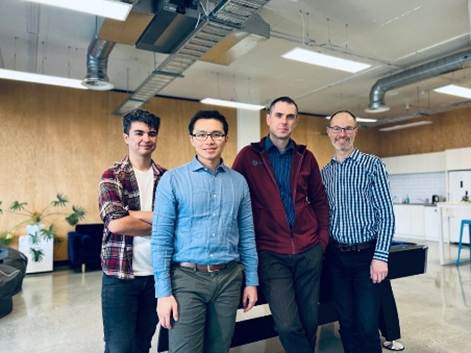
Stroke diagnostics innovator Wellumio secures $7.2m first close to accelerate clinical milestones
Strong investor demand for Wellumio’s portable brain scan technology drives first close of pre-Series A round, with final allocations available on the same terms WELLINGTON, New Zealand, February 11, 2026 - Wellumio, a New Zealand-based medical technology company developing a portable neuroimaging device for rapid, point-of-care stroke detection, has raised $7.28 million in the first close of its pre-Series A funding round to accelerate key clinical milestones.
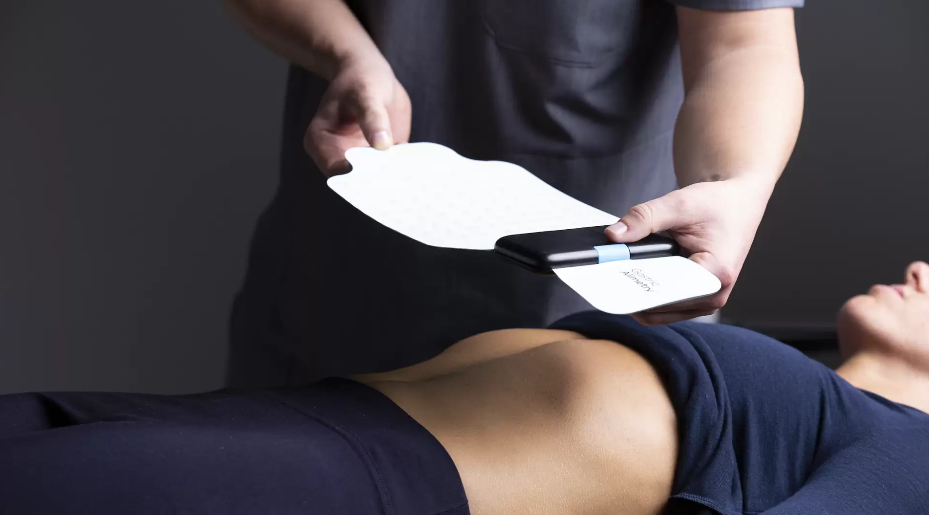
Alimetry gets FDA nod for AI-powered update to its gastric device
It opens up the opportunity for a more wearable next generation for products.
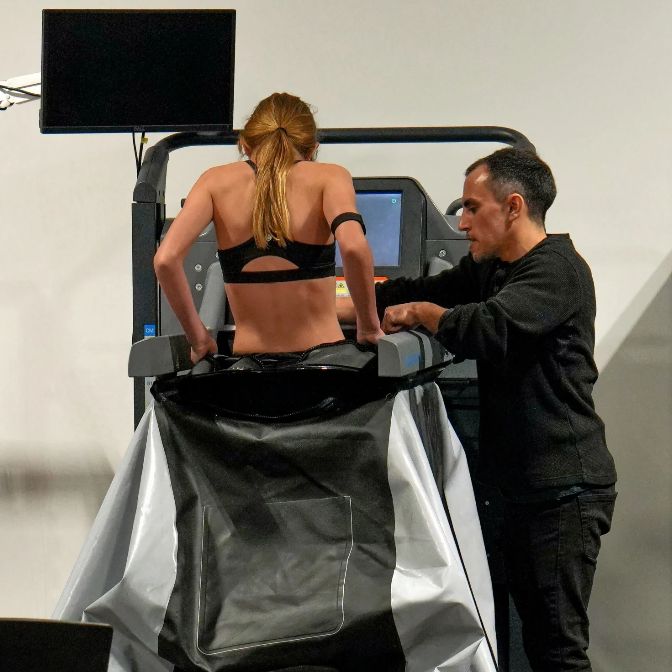
Cutting-edge tools once reserved for astronauts and data scientists are now reshaping rehabilitation for children with cerebral palsy.
Cutting-edge tools once reserved for astronauts and data scientists are now reshaping rehabilitation for children with cerebral palsy.
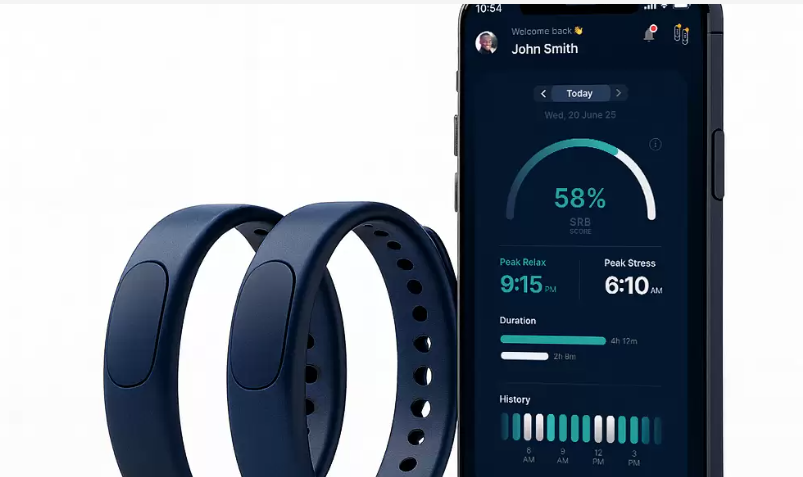
Wearable health platform Symply ramps up for 2026 lanuch
The startup is close to securing a strategic US investor that would allow the co-funders to sidestep local VC seed money.
.jpg)
Applications are open for the Digital Health Festival delegation 2026!
Medtech-iQ Aotearoa, powered by Te Tītoki Mataora | MedTech Research Translator, is inviting researchers, clinicians and start-ups to be part of our delegation to the Digital Health Festival 2026 – a leading industry conference in Melbourne, Australia.

Kitea Health closes $13m raise, lines up human trials in the US
Auckland brain implant start-up Kitea Health has closed an over-subscribed funding round at $13 million, co-founder and chief executive Professor Simon Malpas says. The firm is also on track to begin human trials in the US, following the completion of its first round of human trials, conducted at Auckland Hospital
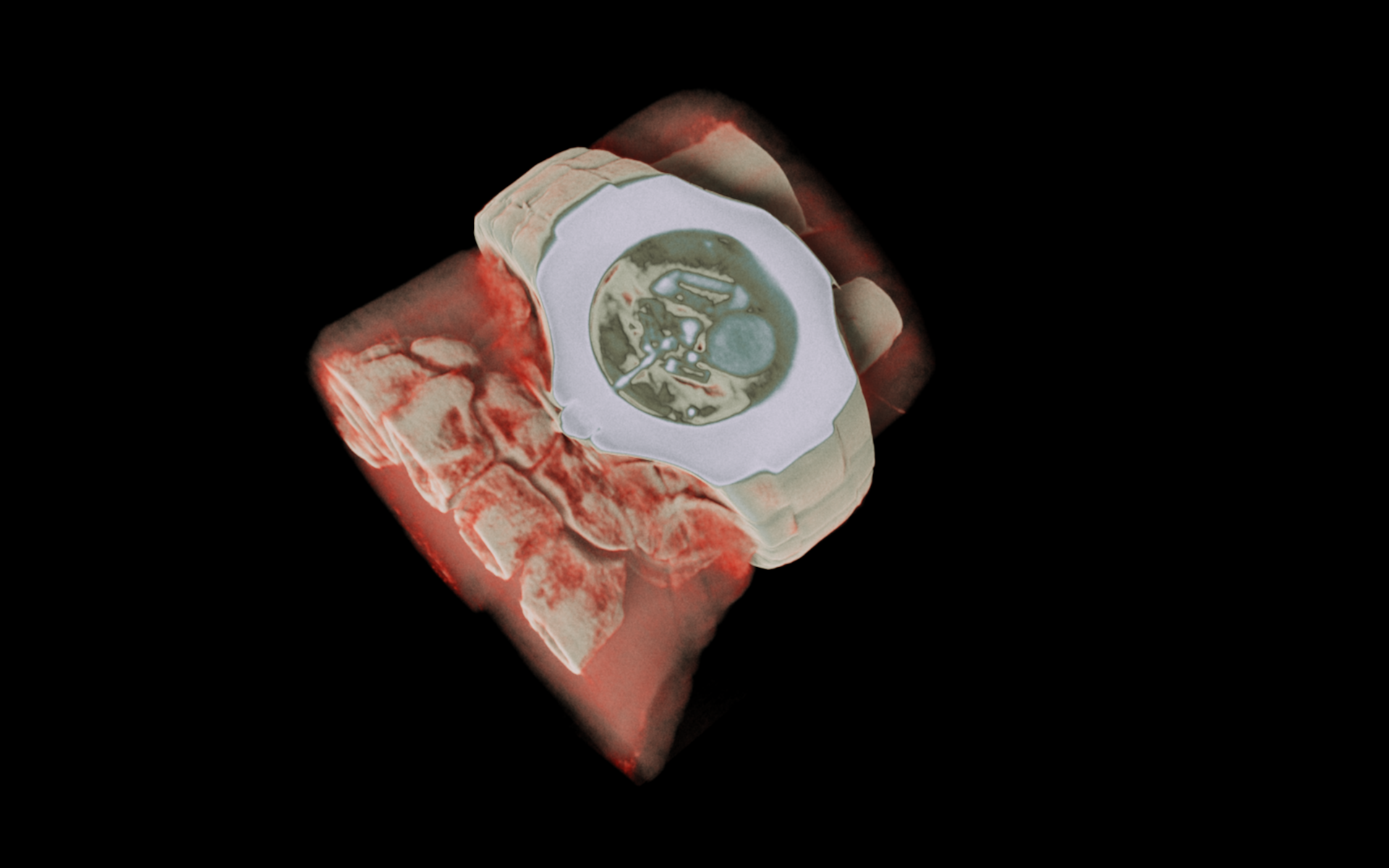
Charles University selects Mars Bioimaging’s photon-counting CT scanner to advance pioneering preclinical imaging research in Europe
New Zealand–developed spectral photon-counting CT scanner will open new frontiers in biomedical and materials research at the Center for Advanced Preclinical Imaging (CAPI); open access for Czech-BioImaging and Euro-BioImaging consortium members extends the technology’s impact across Europe
.jpg)
Smart decisions get GoodAir Nosebuds to market
In 2023, we featured Goodair Nosebuds and their path to commercialisation. In September 2025, their first shipment of a thousand units sold out in two days. Inventor Dr David White from the New Zealand College of Chiropractic’s Research Centre says, modestly, of the launch: “It was a good sign”.
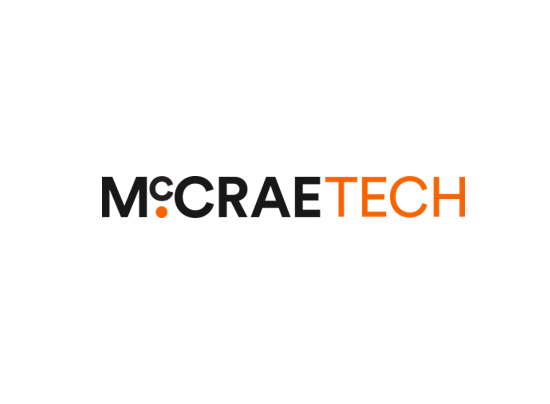
McCrae Tech: Accelerating Global Health Technology
McCrae Tech is a global health-technology group founded by Ian McCrae, the entrepreneur behind Orion Health. It brings together three independent companies - Amalga, Indexity, and Orchestral, each advancing healthcare in a unique way.

A new IP management policy for New Zealand research
The government is introducing a national Intellectual Property (IP) management policy that gives more rights to researchers to commercialise their own inventions.

Preserving our Heritage in the Light of Innovation: Pacific Data Sovereignty and AI
The Pacific Data Sovereignty committee and Moana Connect have recently released a report discussing the intersection of AI and Pacific Data Sovereignty. In a project funded by Te Tītoki Mataora | MedTech Research Translator, Pacific data experts, technologists, community and cultural leaders came together for collaborative discussions around the benefits, areas of concern, key priorities, and recommendations.

New Zealand’s tech exports hit NZD $20bn, led by ICT growth
New Zealand's technology export sector posted record revenues of NZD $20 billion in the financial year 2025, an increase of 9.9% over the previous year. The performance highlights the growing economic importance of technology, cementing the sector as the country's third largest export earner after dairy and tourism.
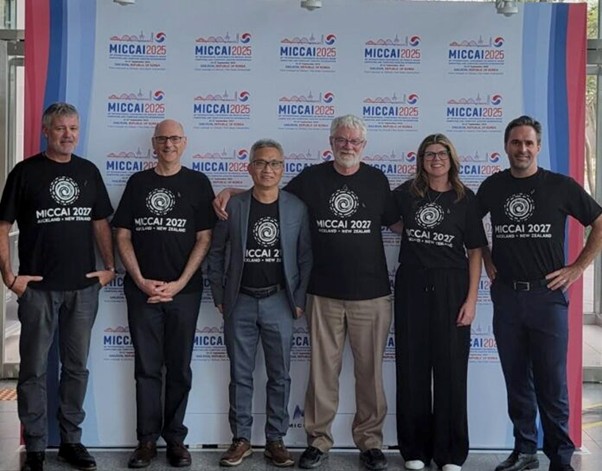
Auckland to host global AI in medicine conference
Auckland has been confirmed to host the 30th Annual Medical Image Computing and Computer Assisted Intervention Conference 2027 (MICCAI 2027), the world’s leading forum for medical imaging, robotic surgery and image-guided surgery.

AI scribe cuts after-hours admin in hospital EDs, trial finds
An artificial intelligence transcribing tool substantially cuts after-hours administration in hospital emergency departments, but a primary health academic warns it could damage patient trust in the health system.

Tech Auckland - Auckland's MedTech Sector
Looking for new technologies that improve human health? Check out Auckland’s medtech sector.
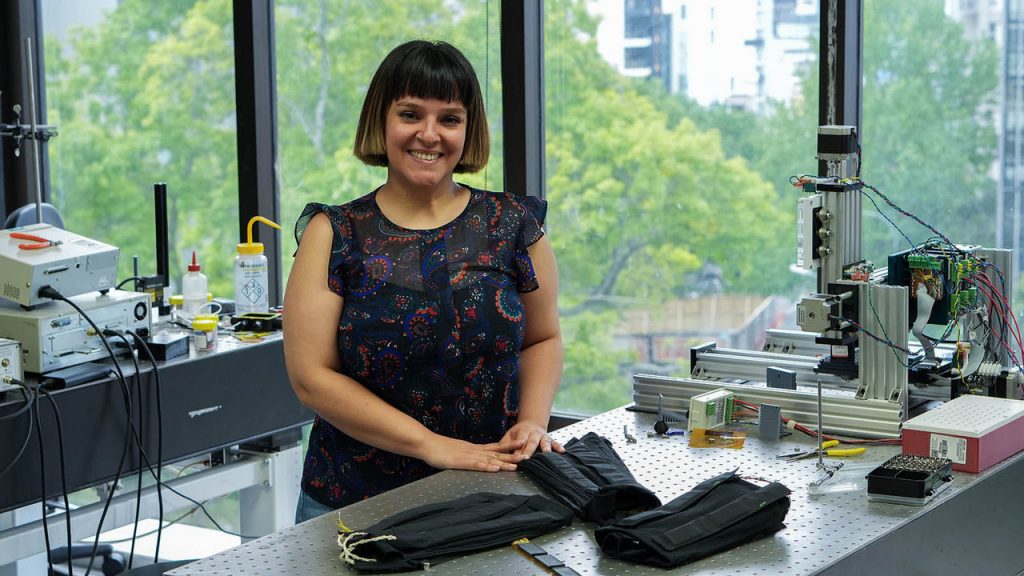
Smart garments for painful swollen limbs
Inspired by her aunt’s struggle with lymphoedema, Auckland Bioengineering Institute researcher Dr Massi Hesam is developing wearable sensors that could transform treatment for millions.

Aroa Biosurgery appoints new non-executive director
Aroa Biosurgery has appointed Paul Shearer as a non-executive director, effective Friday October 31. Shearer is an accomplished global healthcare executive with extensive experience in the medical device industry and a proven record of leading international sales growth.

Wellington is Kick-Starting - WellyForge and Digital Health Underway
Exciting news out of Wellington, where serial med-tech entrepreneur Dr Ralph Highnam has started a Science, Tech & Innovation weekly newsletter covering all news and events in Wellington - wellyforge.nz
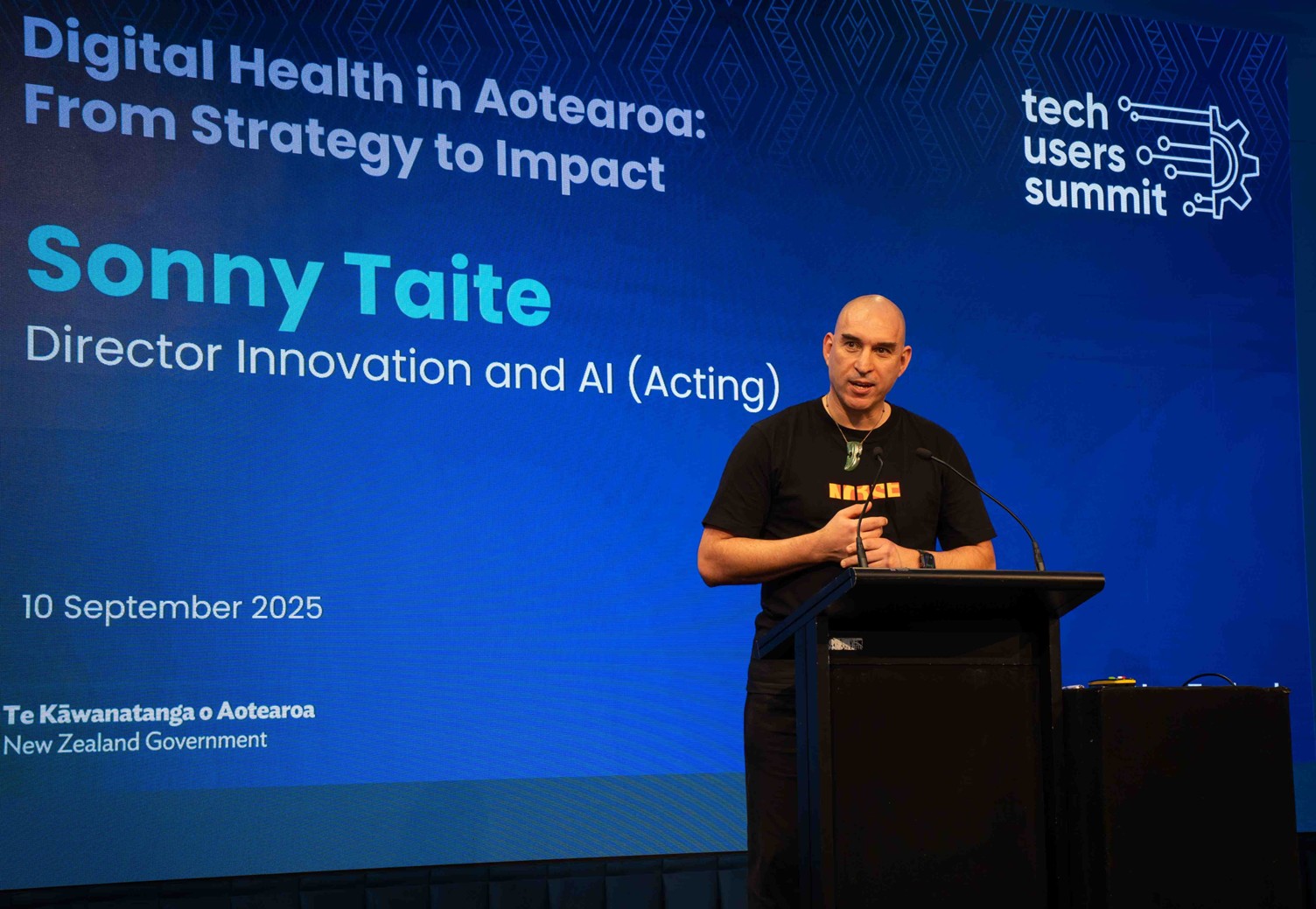
Innovation and AI project team expands at Health NZ
The HealthX team within Health New Zealand is expanding with clinical champions driving implementation on the frontline. The programme aims to deliver monthly roll-outs of digital solutions focused on addressing the five health targets plus mental health pressures.

Improving the way we manage chronic respiratory diseases
Ella Guy was researching algorithms for modelling respiratory function for control of mechanical ventilation when doctors told her they had limited lung function data available from patients in between hospital visits.

Using virtual reality to help with rare limb pain disorder
Complex regional pain syndrome (CRPS) is a rare but highly problematic condition that leaves sufferers in chronic pain with limited treatment options. AUT psychologist Dr Debbie Bean is part of a research group looking at how virtual reality (VR) can be used to help manage chronic pain. The group includes clinical researchers, working clinicians, pain specialists, Māori and Pasifika advisors, VR experts and programmers, and a designer.

Toku Eyes snapped up by Tokyo-listed Topcon Corporation
Locally founded medical technology startup Toku Eyes has been sold to a subsidiary of Tokyo-listed Topcon Corporation for an undisclosed sum.

Health NZ and Sir John Kirwan launch AI therapy chatbot amid ethics debate by clinicians
A therapy chatbot funded by Health New Zealand Te Whatu Ora is being launched today, as clinicians grapple with the ethics of using artificial intelligence advice in mental healthcare.
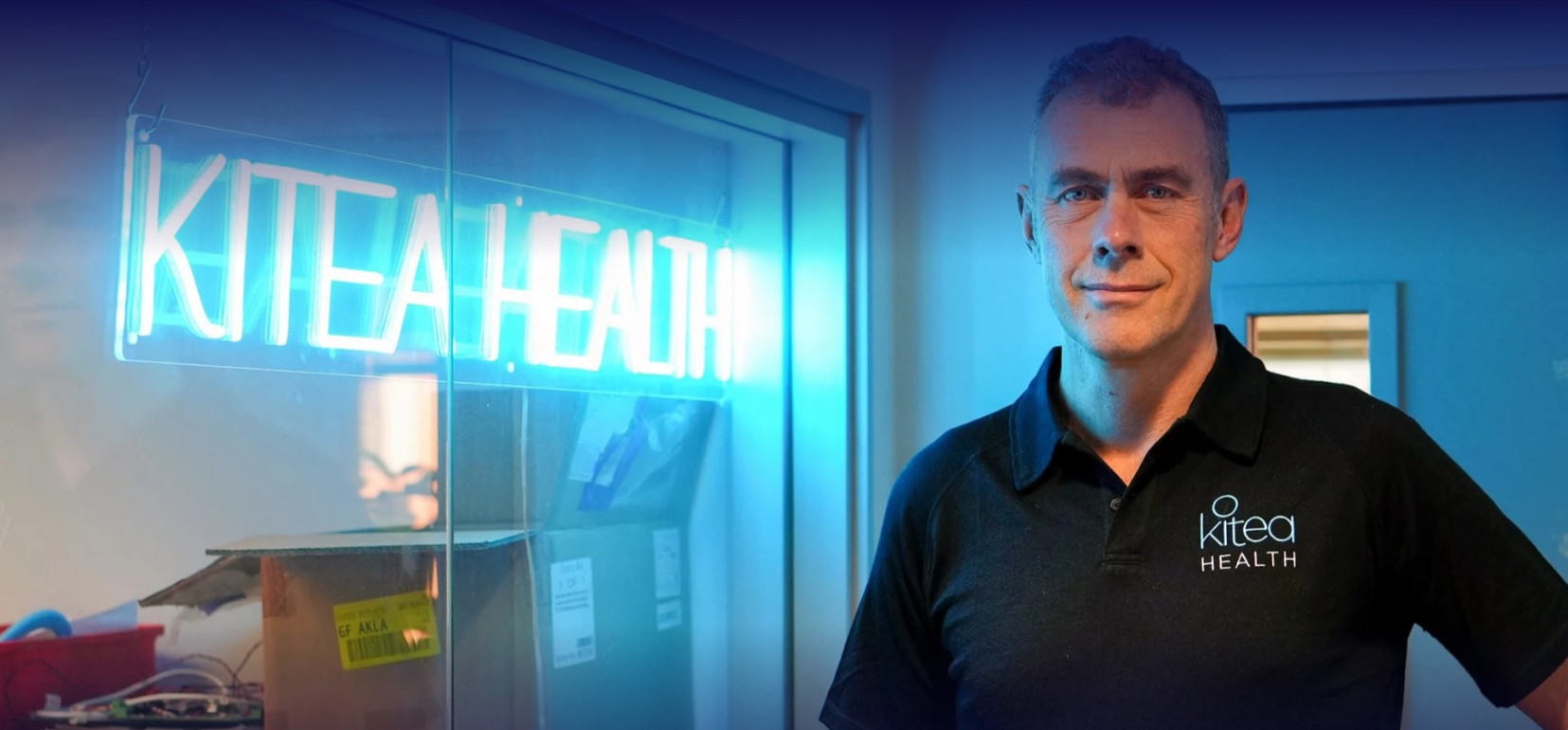
Blue skies thinking the foundation of innovation
Kitea Health’s 'breakthrough' in a US$2 billion market shows the unique role universities perform as engines of innovation by uniting blue-sky thinking, researchers from many disciplines, and industry.

AI healthcare firm Heidi Health raises $110m on the heels of huge New Zealand deployment; A lifeline for small businesses wrongly banned by Meta – Tech Insider
Heidi Health, which bills itself as Australasia’s fastest-growing artificial intelligence healthcare firm, has raised US$65 million ($110m) in a Series B venture capital round that values it at US$465m. The start-up makes an artificial intelligence (AI) scribe that automatically takes notes for a GP, using a microphone on a webcam

Smart tech set to revolutionise heart care
Smart devices that use artificial intelligence have enormous potential to treat heart disease and, with strategic investment, New Zealand could be at the forefront.

Small Business: A breath of fresh air with Goodair Nosebuds
Dr David White, inventor of Goodair Nosebuds, talks to Tom Raynel about the inspiration behind the idea, and how its applications could go global.
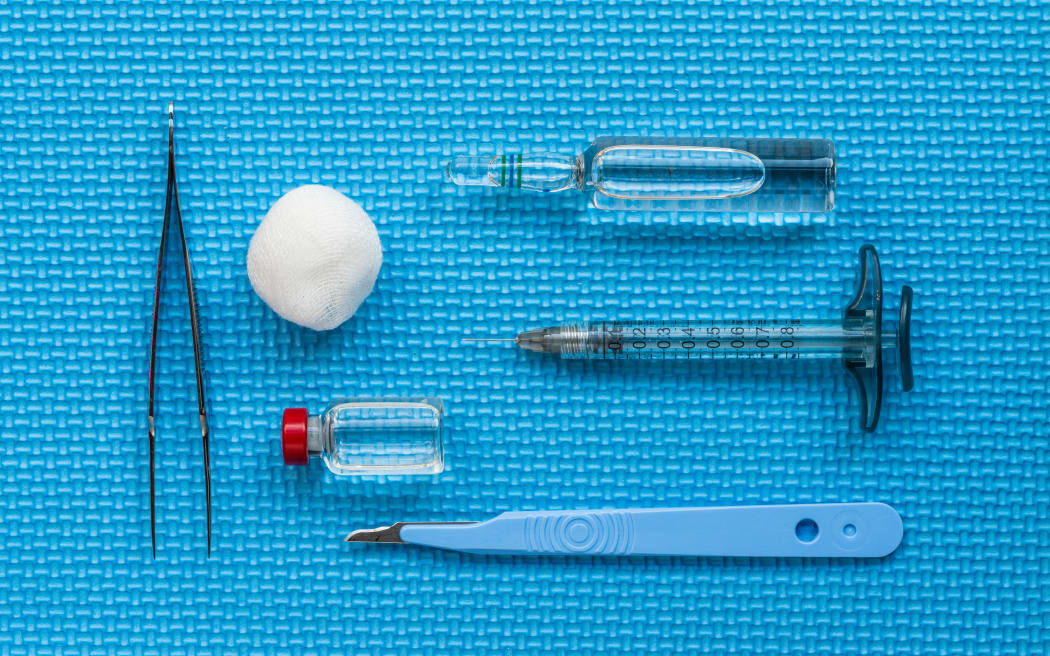
Goverment changes how New Zealand buys medical equipment
The government is touting an end to more than a decade of confusion over how New Zealand buys medical equipment and devices.
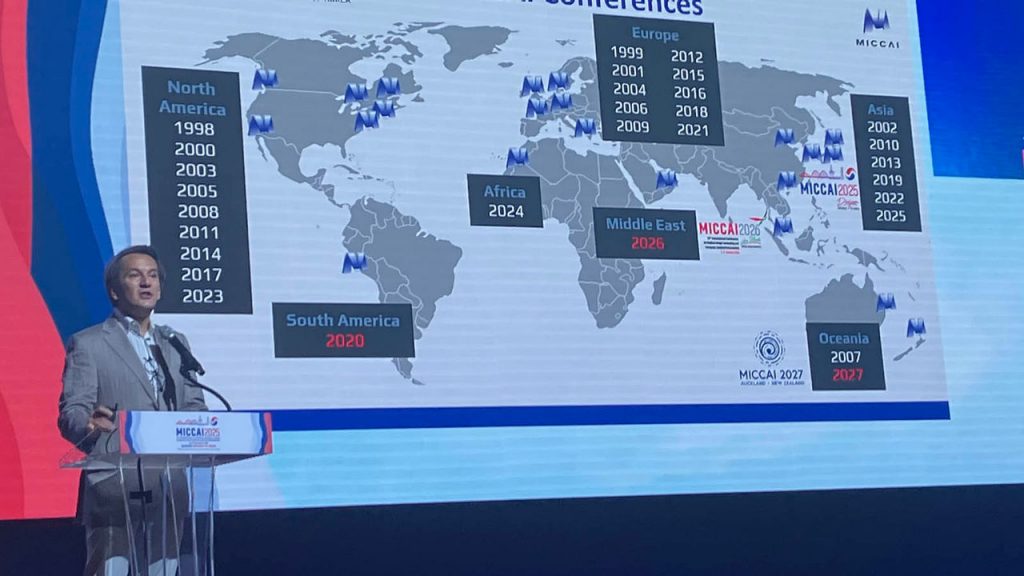
Auckland beats Oz for top global AI conference
New Zealand has won the right to host the world’s premier conference in medical artificial intelligence imaging and robotics, defeating rival bids from Melbourne and Perth.
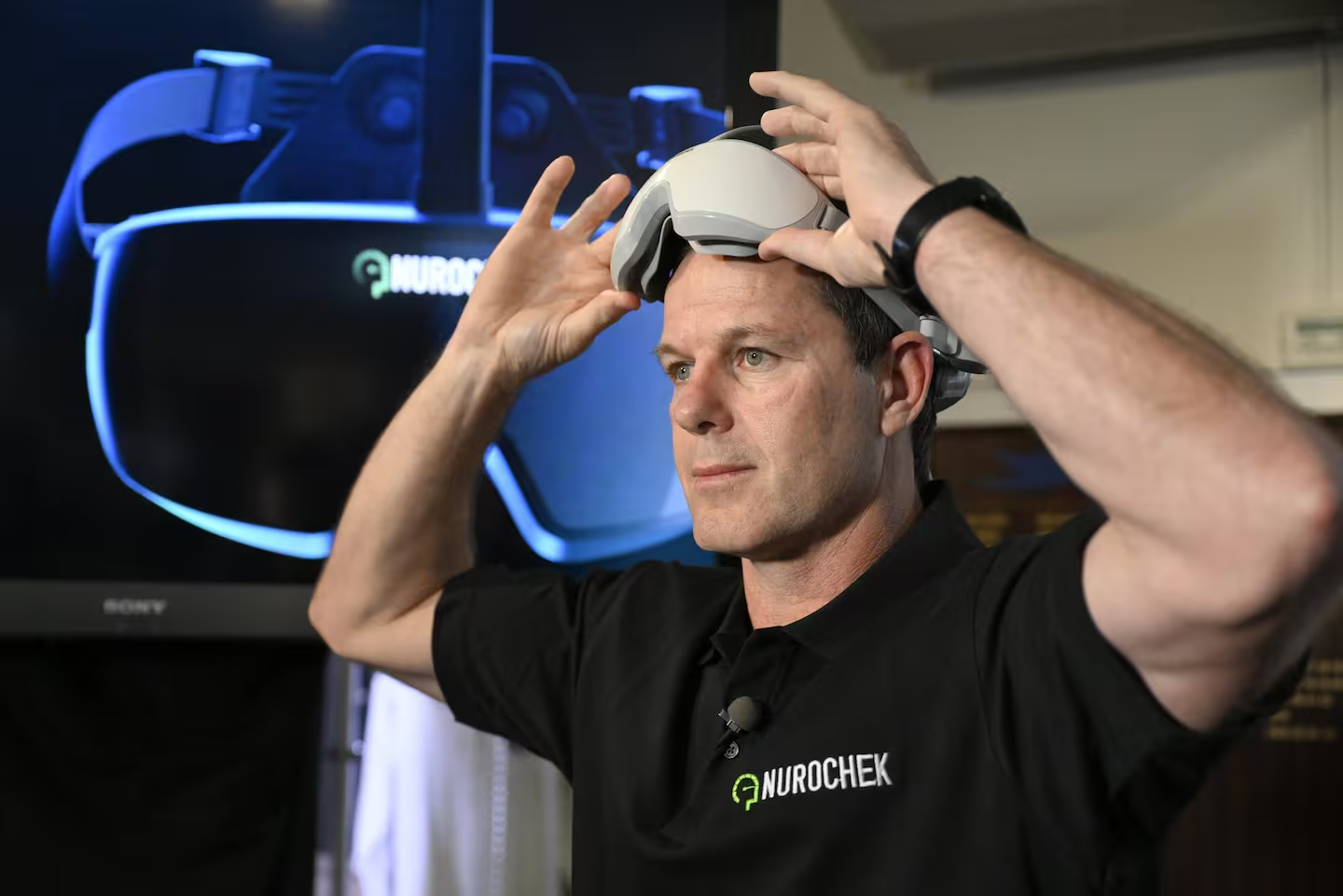
World’s first portable brain scanner to detect concussion launched in New Zealand
New Zealand will have first use of a groundbreaking device that’s set to revolutionise concussion diagnosis for rugby players in the country. The world’s first portable brain scanner – known as the Nurochek headset – will allow head injuries to be detected in just two minutes, delivering an objective test result based on a binary yes or no.

September's edition from the MedTech monster
September's edition from the MedTech monster is here. See your monthly dose of news and events from Aoteaora New Zealand's MedTech ecosystem below.

Partnerships critical to delivering community good
The research landscape has changed dramatically in New Zealand and globally, making partnerships, particularly with industry, critical to delivering community good.

Adding human computer interaction to physiotherapy
Many of us have had some sort of rehab where we must continue the exercises at home. The physiotherapist shows us what to do and off we go – but are we still doing those exercises correctly at home and are they helping?
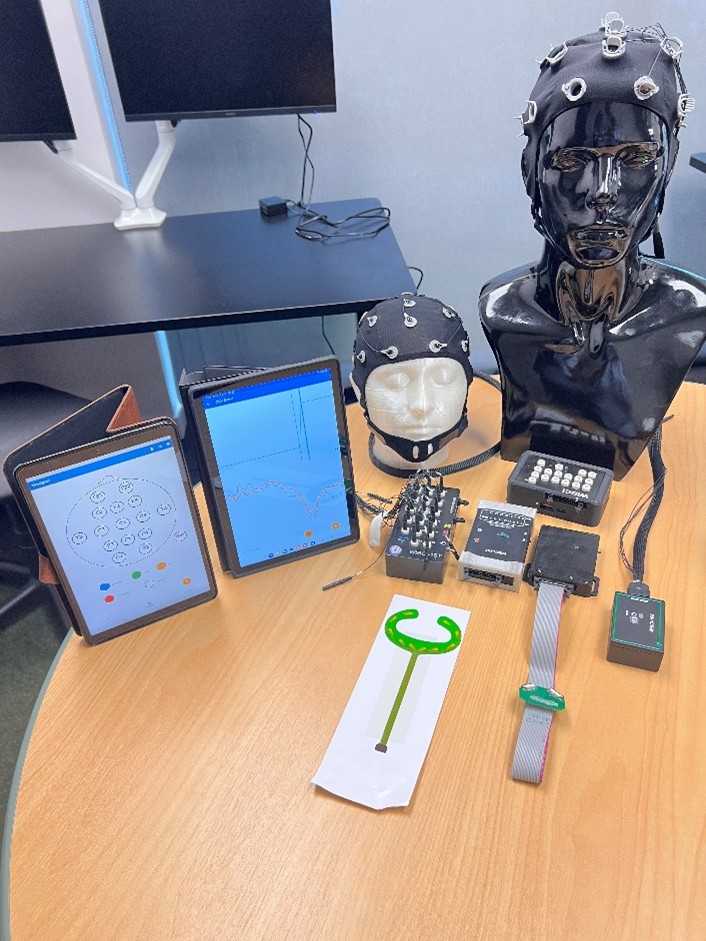
Taking neuro-rehabilitation to the next level
The simple act of lifting the foot during walking relies on precise neural signalling, which stroke often disrupts. When Imran Khan Niazi began his PhD, he focused on a problem that affects thousands of stroke survivors: the inability to lift their toes while walking. That early research sparked a career dedicated to finding innovative, non-invasive solutions for neurological rehabilitation.
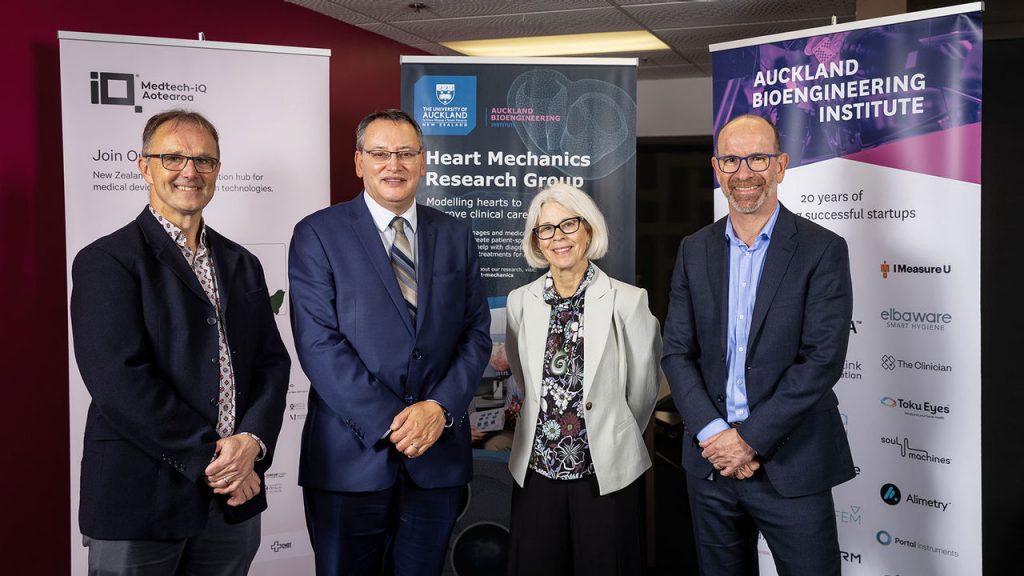
Digital twin NZ US collaboration awarded $4.5m funding
Auckland Bioengineering Institute researchers will work with the Oden Institute, University of Texas, to develop physics-informed AI computational modelling.
.jpg)
Stroke diagnostics innovator Wellumio seeks investors to transform stroke recovery
Wellumio is transforming stroke care with portable brain scans to rapidly detect acute stroke that cuts diagnosis time and unlocks treatment in the ‘golden hour’ when every second counts WELLINGTON, New Zealand, September 16, 2025 - Wellumio, a New Zealand-based medical technology company pioneering the future of stroke diagnostics with its portable neuroimaging device, Axana®, for rapid, point-of-care detection of stroke, is seeking investors to accelerate its breakthrough solution. Currently, less than 5% of stroke patients receive treatment within the critical 'golden hour' when the chance of disability free survival is highest – and access to fast, accurate diagnosis tools can significantly improve diagnosis, treatment and outcomes. Wellumio’s Axana scanner brings advanced neuroimaging to the patient’s bedside to detect acute stroke biomarkers - reducing diagnosis time by over 90% and providing critical insights into the severity and extent of stroke-related damage. Wellumio’s Snowball Effect crowdfunding equity investment campaign launched today to give an opportunity to invest alongside existing shareholders including Nuance Capital, Movac, Icehouse Ventures, Cure Kids Ventures, NZ Growth Capital Partners (NZGCP)’s Aspire Seed Fund, Outset Ventures and Booster Innovation Fund.

Portable stroke device: saving time will save lives
Wellington company Wellumio is a finalist in this year's KiwiNet Awards which celebrate the union of scientific research with commercial opportunity. Wellumio has created a portable device that can detect strokes at the first point of care e.g. in an ambulance. With an estimated 9500 New Zealanders suffering a stroke every year and tens of millions worldwide, it has the potential to not only improve patient outcomes but to save billions in healthcare costs globally. The first human clinical trial of the device is currently being run at The Royal Melbourne Hospital. Co-founder, Dr. Shieak Tzeng explains to Susie how it works and when they hope to get it to market.
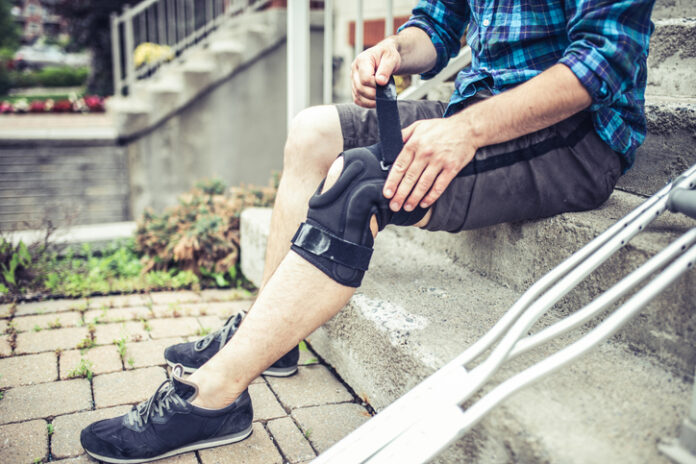
Auckland researchers lead 3D-printed orthotics work
A new approach to orthotics and bone scaffolds could mean devices that fit your body, lifestyle, and healing needs – designed down to the smallest detail – is being led by Auckland of University senior lecturer in engineering science and biomedical engineering, Dr Maedeh Amirpour. Dr Amirpour is working to develop personalised supports using biocompatible 3D-printed frameworks combined with body-safe gels.

Med tech showcase hit with Māori and Pacific youth
Māori and Pacific students get hands-on with cutting-edge healthcare technology.
.jpg)
Using electrical stimulation to prevent asthma attacks
An inhaler delivers medication directly to the lungs when an asthma attack starts but what if there was a way to prevent the attack even starting? That’s what University of Otago Associate Professor Yusuf Cakmak and his colleagues are working on – and it just might be a small wearable device.
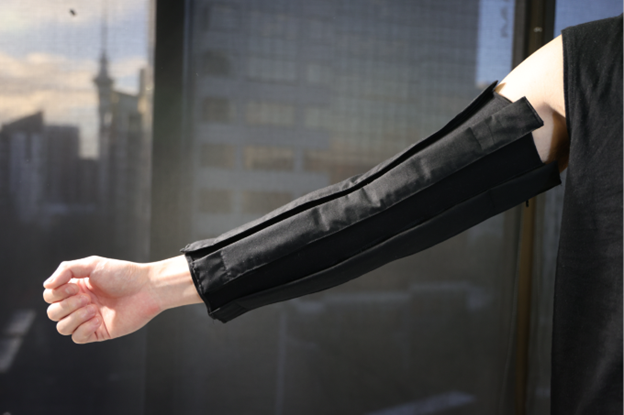
Improving pressure measurement at the human body interface
Our perception of pressure is subjective. We can’t quantify the pressure we apply to objects around us, nor to our own bodies. Research fellow Dr Massi Hesam, from the Auckland Bioengineering Institute is working on a new approach using her bioengineering skills.

The AI in Health Research Network
Ai is transforming healthcare, but how do we manage this rapidly evolving environment? Psychologist Associate Professor Rosie Dobson is one of those working to support AI research translation into clinical practice through the establishment of the AI in Health Research Network.

VC firm Movac leads $4.75m seed round for medtech startup Avasa
The startup will use the funds to get US regulatory approval for its arterial coupler

AROA BIOSURGERY LTD (ARX) - Healing Revolution: How Aroa's ECM Technology is Transforming Tissue Regeneration
This week, AROA's Founder & CEO Brian Ward was a guest on the ASX Briefs podcast, where he spoke about the importance of clinical evidence, our strategic priorities and financial performance. Check out the podcast on Spotify

Photon Factory laser-tech spinoff in award spotlight
A tool for fast skin cancer diagnosis is moving closer to commercialisation. Dr. Michél Nieuwoudt is a finalist in research commercialisation awards for a laser-tech tool to detect skin cancer developed by Luminoma, a spin-off from the University of Auckland’s Photon Factory. Nieuwoudt is in the running for the “researcher entrepreneur” award at The Kiwi Innovation Network (KiwiNet) awards to be announced on 22 October.

The Auckland Uni student's plans to help dementia research
People over sixty are wanted to hang out with a tiny robot called iRobi and play some games.University of Auckland Master of Robotics and Automation Engineering student Zahra Ally is developing a new game to assist people with cognitive decline or early symptoms of dementia, and she needs help. She chats to Jesse.

Cutting-edge healthcare technology showcase
MedTech Explorer - inaugural showcase bringing researchers, innovators and experts to South Auckland community.
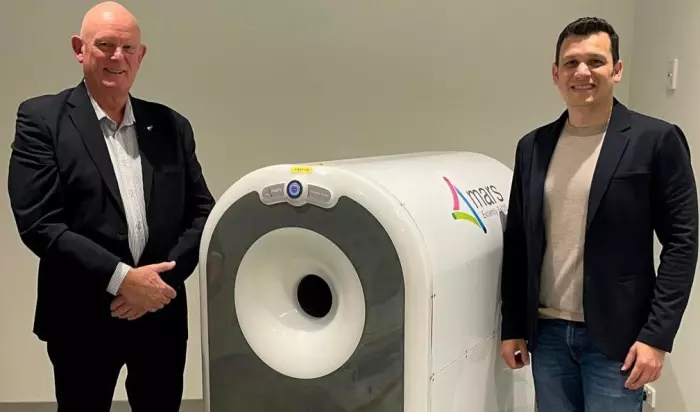
New Mars Bioimaging CEO plans final push into the marketplace
Christchurch medical imaging company Mars Bioimaging has appointed Ojas Mahapatra as group chief executive as it seeks to scale up its commercial operations. Mahapatra was formerly the CEO of the hydrogen technology company Fabrum. Mars, founded in 2007, closed a $7.6m initial raise last year. It is currently raising an additional $2.4m to reach its $10m target for its Series A round, led by venture capital company Pacific Channel …
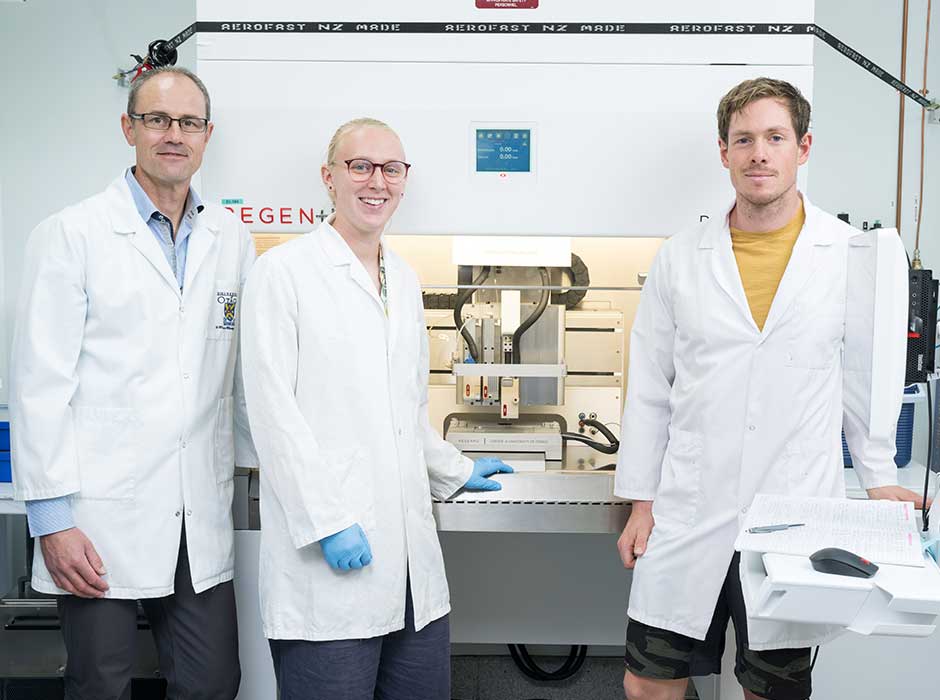
Bioprinting breakthroughs
A small team of Otago researchers has a bold ambition: to bioprint harvested human stem cells, enabling orthopaedic surgeons to repair damaged bone joints using a patient’s own cells – and that dream is now within reach.

Wee chat: What you're afraid to ask about your pelvic floor
It's an issue that affects one-in-three women - or more than 200 million people worldwide - but isn't widely talked about: urinary incontinence. Dr Jenny Kruger is a researcher in the area of pelvic floor and muscle function and dysfunction in women and has led the Pelvic Floor Research Group at the Auckland Bioengineering Institute since 2011. Hannah Orr has had over 15 years of experience as a pelvic floor physiotherapist. Both of them will be part of a panel discussion being held in Auckland for Women's Health Week that looks at everything from incontinence to prolapse and pelvic pain. They join Susie to talk about moving beyond stigma and what people can do to strengthen their pelvic floor.
.jpeg)
Piloting early intervention approaches for children with ADHD
The team behind MindKiwi, a pilot programme using mindfulness, pūrākau/traditional Māori stories, and movement for tamariki/children with Attention Deficit Hyperactivity Disorder (ADHD,) is now looking at whether the approach can benefit all children with emotion regulation difficulties.
.jpg)
Developing platform technology to treat hearing loss
University of Auckland researchers are developing a medical device to help assess hearing loss and deliver compounds and other treatments. Hearing loss caused by damage to the inner ear (sensorineural hearing loss) – the most common kind – is a challenge to diagnose and treat. University of Auckland researchers Professor Peter Thorne and Dr Haruna Suzuki-Kerr are on a mission to change that – with the help of a sheep’s skull and technology.
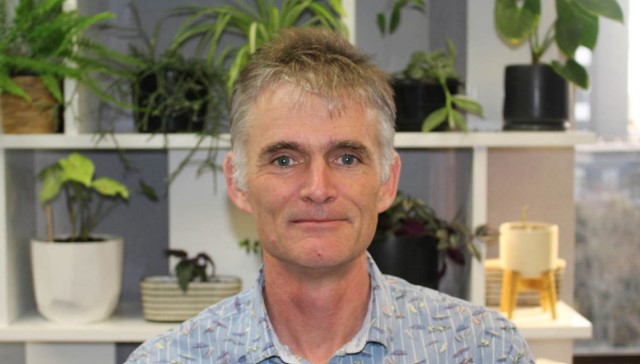
The future of pacemakers? Tiny, talkative, wire-free
What if pacemakers could last a lifetime, work together, and sit right in the heart? That’s the vision behind a million-dollar research grant.

Sahha.ai Raises $1.2M to Scale their Health & Wearable Data Engagement API
Sahha.ai, a company enabling seamless integration and analysis of health, wellbeing, and fitness data into digital products, today announced the close of a $1.2 million in new funding to invest into growth (bringing total funding to $4M). The round saw follow on participation from leading investors Supermoon Capital, Aura Ventures and Antler, and new investors include Gandel Invest, Func Ventures, and Cutri Family Office.

Medtech startup HeartLab raises $2m for US expansion
Medtech startup HeartLab has raised $2 million in its latest seed round, taking its total funding to around $8m to date.

AUT and Abbott launch pioneering female athlete health research initiative
Auckland University of Technology has launched a world-leading initiative aimed at addressing the long-standing neglect of medical research on female athletes. Through a multi-year collaboration with global healthcare technology company Abbott, the university is tackling critical issues related to concussions and women’s health.

Can tech fix surgery delays? One student thinks so
When University of Auckland fourth-year medical student Ronan Payinda saw a patient’s surgery cancelled because they hadn’t stopped eating or adjusted their medications, something clicked.

UK Govt says more retailers should use Kiwi crime-fighting software firm Auror, medtech Formus Labs nears commercial launch in the US - Tech Insider
The Labour Government in the UK has a Kiwi software firm at the heart of its retail crime crackdown. Auckland medtech startup Formus Labs is about to crack the US market open - and be big in Japan. A conference hears that medtech is becoming a multibillion-dollar earner for NZ.

New dental treatment for children about to be commercialised
A new tooth-capping technology that will provide better dental care for children is being commercialised by a Dunedin academic. Associate Professor Dr Joanne Choi is planning to spin out a company from the University of Otago and seek seed investment for her Snow Cap Crowns.

Health tech winners at Hi-Tech Awards
Two health tech spin-offs from Auckland University have been recognised at the NZ Hi-Tech Awards. Kitea Health won the Most Innovative Deep Tech Award for its groundbreaking brain pressure monitoring technology, while Toku Eyes won the Most Innovative Hi-Tech Software Solution for its AI-powered product BioAge.

The world's only artificial gut manufacturer
Who knew that the world's only artificial gut manufacturer was based in Auckland? When we found out, we just had to learn more. Garth Sutherland is CEO at The Insides Company and tells Perlina Lau all about prosthetic intestines.

Hi-Tech Awards offer a map of the future
Mike “MOD” O’Donnell is a profession director and chair, and an amateur motorcyclist. He is also an unpaid trustee of the New Zealand HiTech Trust.

How New Zealand is tapping AI for healthcare training, diagnosis and chronic care
AI is transforming New Zealand's healthcare, led by the Auckland Bioengineering Institute. Innovations include Formus Labs' surgical planning and Toku Eyes' retinal diagnostics. Data integrity remains a challenge.

Fisher & Paykel Healthcare passes $2 billion in revenue for the first time
Fisher & Paykel Healthcare earned revenue of more than $2 billion from the sale of its medical devices for the first time.

Te Tītoki Mataora summer studentship supervisor applications are now open
Do you want to supervise a student on the Manaaki or Niu Tupu pathway this summer? These Māori and Pacific students offer unique insights into research and its community impact for your health technology research project.

Tylt - Focus Through Movement
From an early age we are taught that sedentary practices require stillness. Whether learning or working, drawing, writing, or making we are told we must first sit still in order to focus. For those neurodiverse, movement can have a calming effect. Recent studies highlight that a range of movement – including fidgeting, stimming, or tapping, is highly effective at helping neurodiverse and people focus, relax, and self-regulate.

‘Natural’ pacemaker successfully trialled in humans
A ‘natural’ pacemaker that mimics the heart’s variable rhythm is being trialled in humans for the first time with no adverse effects reported and the promise of improved outcomes.

Medtech startup Veriphi launches $2m crowdfunding campaign
It's taken 16 years but the company finally has its first paying customer.

Health Minister to speak at Melbourne digital health festival
Minister for Mental Health and Associate Minister of Health, Matt Doocey will travel to Australia today to attend Digital Health Festival 2025 in Melbourne.

oVRcome: Kiwi start-up aims to cut down on mental health wait times
Access to mental health support is a constant problem - but one Kiwi start-up is working towards a solution. Between the shortage of qualified professionals, long delays and high costs, plenty of New Zealanders aren't getting the help they need.

oVRcome Tackles Mental Health Treatment Gap Head-On
New Zealand Digital HealthTech Start-Up ‘oVRcome’ Tackles Mental Health Treatment Gap Head-On with Instant, Clinically Proven VR Therapy Christchurch-based digital health start-up oVRcome is tackling rising mental health pressures and clinician shortages with a powerful, tech-driven solution: instant access to clinically proven, scalable treatment-delivered straight to a smartphone.

The NZ company 'democratising hearing health'
James Whittaker never planned to get into the hearing business.

AUT and Abbott Team Up To Tackle Concussions & Women's Health
Under the collaboration, Abbott has installed the ARCHITECT ci4100 analyser, one of its Core Laboratory platforms, in AUTs SPRINZ biochemistry lab at AUT Millennium, a hub for many of New Zealands high-performance sports organisations and Olympic …

Living in the hearing and non-hearing worlds
Master of Audiology student Naketa Philips (Ngāti Patumoana, Rongowhaakta) is part of two very different worlds – the hearing world and the non-hearing world. She was born deaf and now has a cochlear implant in her right ear.
.jpg)
Collaborating to reduce head injury in young sports players
Professor Nick Draper is interested in solving real-world problems – like the design of headgear to reduce the impact of collisions in rugby for young players. Based at the University of Canterbury, Draper and his team are working on a highly collaborative project funded by Te Tītoki Mataora to learn more about what happens during rugby game collisions, particularly during the first year of playing.

Gisborne-based Mātai Medical Research Institute leads neuro-disease innovation
The Mātai Medical Research Institute is at the forefront of breakthrough efforts to deepen the understanding and treatment of neurological diseases, thanks to a pioneering new MRI technique. Based in Gisborne, Mātai is the home of amplified MRI (aMRI), a cutting-edge imaging method that enables enhanced visualisation of the brain and its subtle movements.

Jessica Grainger Shares Her Story with Paddy Gower on TFN
Jessica Grainger bravely shared her journey on Paddy Gower, TFN, shining a light on the realities of living with a chronic condition, such as Hydrocephalus, and the need for proactive health care management.

Royal Perth Hospital Partners with RosterLab for Smarter Rosters
The Royal Perth Hospital (RPH), a leading tertiary hospital in Western Australia, has partnered with RosterLab to implement an AI-driven rostering solution for its Acute Medical Unit (AMU) and Intensive Care Unit (ICU).

Small Business Project: MoleMap CEO has big plans for expansion
MoleMap launched in Aotearoa in 1996 as a skin cancer detection clinic and has since expanded across the Ditch, and headquarters itself in Sydney.

AI leads to breakthrough in knee surgery
Technology breakthroughs, including AI, have facilitated to a promising new method of knee-replacement surgery.

Finding a better way to deliver drugs through the skin
Delivery of modern drugs poses some problems and Dr James McKeage may have an answer. McKeage is a Research Fellow with the Bioinstrumentation Lab at the Auckland Bioengineering Institute (ABI) based at Waipapa Taumata Rau, University of Auckland. He focuses on needle-free jet injection technology where fluid drugs are delivered as a fine, high-speed jet. His goal is to use this technology to allow patient self-administration and improve patient outcomes.

Medical Design & Innovation Research Cluster
The Medical Design & Innovation Research Cluster provides product design and development research expertise for health research agendas, with collaborating partners from: industry, primary and secondary health care sectors, clinicians and related research institutions. The purpose is to innovate within the health sector (human and animal health), by leveraging our newly cemented partnership with the Consortium of Medical Device Technologies (CMDT).
.png)
New tool to improve access to diabetes screening and workplace safety
Angelica Lawson was working in Audiology when she came up with two game-changers for the screening and prevention of Type 2 diabetes. “I was seeing more and more patients with permanent severe hearing loss due to late and misdiagnosed diabetes; it got to a point where too many people were losing their quality of life - which made me question what’s going on,” says Lawson who heads Ceratec Health which is bringing a new AI-driven diabetes screening tool to market.

Kitea Health nears finish line for $10m raise, reports key wins
After winning spots on two FDA fast-track programmes, and the first implant of its fluid pressure sensor for a child, Auckland’s Kitea Health is $7 million and counting into a $10m funding round.

Startup behind interactive doorbell
Startup Dunedin recently announced the 12 recipients of microgrant funding to help take the next small step in their business journey. Business editor Sally Rae talks to those behind health tech startup Intermentis, which is hoping to launch commercially next year.

Leg-Up stand and meet the world
Leg-Up, is a Knee, Ankle, Foot Orthosis(KAFO). By leveraging semi-autonomous parametric design and manufacture, Leg-Up shifts orthotics from being a medical device and signifier of disability to an accessible, desirable enabler of fully independent mobility.

A better way to assess moles for skin cancer
Assessing a mole’s appearance for skin cancer poses a number ofchallenges that researchers MichélNiewoudt and Maher Khaled are trying to overcome with LumAssure™ – anew device they’re developing.

The MedTech innovation set to redefine hearing loss treatment
Dr Haruna Suzuki-Kerr is a researcher at Waipapa Taumata Rau, the University of Auckland, who is on a mission to revolutionise hearing care—translating cutting-edge research into real-world solutions.

Medtech sold to Banyan Software
The largest supplier of practice management systems (PMS) to Kiwi GPs has been bought by a global software investor Banyan Software.

ABI hosts $20m applied doctoral launch
Science Minister Shane Reti chose the Auckland Bioengineering Institute as the venue to announce a groundbreaking PhD funding scheme.

How AI is transforming breast cancer detection and saving lives
Volpara Health is transforming breast cancer detection through its mind-boggling AI software, helping healthcare providers improve early diagnosis and patient outcomes. Breast cancer remains one of the most pressing health concerns worldwide, but technological advancements are resulting in early detection and helping save more families from cancer.

Why aren't more women founding startups?
Research shows fewer women undergraduate students want to become entrepreneurs than their male counterparts. How do we close the gap?

NZ Hi-Tech Awards are Open!
The NZ Hi-Tech Awards are open for applications. Entries close Monday 3rd March.

Stroke Detection Innovator Wellumio Enrolls First Patient in Australian Clinical Trial for 'Axana' 0.1T portable magnetic resonance imaging device
A Melbourne hospital images the first patient in Australia using the Wellumio Axana device, marking a milestone in advancing rapid acute stroke detection in the Emergency Room. With a unique ability to perform rapid MRI-based stroke imaging at the patient's bedside, Wellumio takes a major step toward generating the clinical evidence required for adoption of the Axana device.

Whānau Tahi Receives Prestigious Social Value International Software Accreditation
We are thrilled to announce that Whānau Tahi has been awarded Software Accreditation by Social Value International – a global milestone that reflects our unwavering commitment to measuring, managing, and maximising social investment and impact.

NZ science shake-up aims to drive innovation and investment
Sweeping reforms to the science sector, including the creation of a dedicated foreign investment agency and restructuring key research institutions, aim to boost New Zealand's economy by encouraging investment and innovation in science and technology, says Minister Judith Collins.

Smallest brain implant ever helping those living with hydrocephalus
A patient in a clinical brain implant trial says the world-first technology has reduced her anxiety around her symptoms. Clinical trials are underway for a neural implant to monitor brain pressure in those living with hydrocephalus.

First brain implant in child with hydrocephalus as Kitea Health launches new trial
In another world-first, a miniature pressure sensor has been successfully implanted into the brain of a child with hydrocephalus in New Zealand - a game-changing medical breakthrough for people living with a time bomb inside their heads.

Wellumio Develops Portable Stroke Detection Device
The New Zealand medical device company has established a subsidiary in the San Francisco Bay area to expand its global footprint.

Kitea Health begins brain implants on children
The medtech startup has also kicked off a $10m funding round.